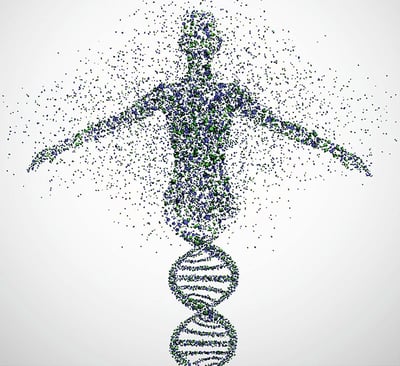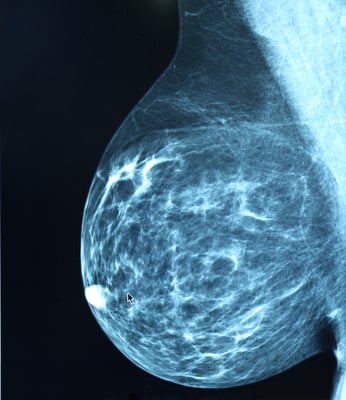Keyword: brca



Relevance: Medium
Most relevant for: People who are considering or have had direct-to-consumer testing
Study: Evaluation of some direct-to-consumer genetic testing reveals inaccuracies and misinterpretations
A clinical genetic testing laboratory examined results from direct-to-consumer genetic testing ordered directly by patients. They found many instances of false positives—reported mutations that were not actually present—and in some cases, reports of variants that "increased risk," but were actually benign. This study emphasized the importance of involving genetics experts in the interpretation of genetic test results. (6/28/18)
READ MORE ›


Relevance: Medium-High
Most relevant for: Women with an MSH6 or PMS2 mutation
Study: Mutations in Lynch syndrome genes MSH6 and PMS2 may be associated with breast cancer
Some women with mutations in MSH6 and PMS2, two Lynch syndrome genes, may have a modest (2 to 3-fold) increased risk for breast cancer. (6/14/18 updated 09/25/19)
READ MORE ›


Relevance: Medium-High
Most relevant for: Young high risk women
Study: Take your time, follow your heart: strategies for communication about family planning
When a woman is newly diagnosed with a BRCA mutation, she faces many risk management decisions. Although many of these decisions impact family planning, little guidance is available on how to communicate this information. This study examines female previvors’ advice on effective strategies for discussing family planning decisions. (03/28/18)
READ MORE ›


Relevance: Medium
Most relevant for: People who are considering or have had direct-to-consumer testing through 23andMe
Update: FDA approves at-home test kits for inherited cancer: how useful are they?
Genetic testing for health conditions (such as risk for cancer) typically requires a prescription from a doctor. Until recently, direct-to-consumer (DTC) genetic testing has focused on tests to learn your ancestry and find of unknown branches of family trees. A laboratory called 23andMe that provides direct-to-consumer genetic testing has been given FDA approval to report results for 3 mutations found in the BRCA1 and BRCA2 genes. The FDA statement provides details about this approval and warns people about the limitations of the 23andMe test. (03/19/18)
READ MORE ›


Relevance: Medium-High
Most relevant for: Young breast cancer patients
Study: Survival and mutation status in breast cancer patients under age 40
Studies have found conflicting rates of survival for BRCA mutation carriers who develop breast cancer, reporting better, worse and similar outcomes compared to patients with sporadic breast cancer. New results of the large Prospective Outcomes in Sporadic versus Hereditary (POSH) breast cancer study found no difference in survival rates between the two groups. The study also concluded that among young triple-negative breast cancer patients during the first 2 years after diagnosis, BRCA mutation carriers had an initial survival advantage compared to women without a BRCA mutation. (02/15/18)



Relevance: High
Most relevant for: Women at increased risk for breast cancer due to an inherited mutation
Study: Should biannual MRIs replace annual mammograms in high-risk women?
The risk of breast cancer is exceptionally high in women who have a personal or family history of breast cancer or who carry a mutation in BRCA or certain other genes. More frequent screening is one strategy for early detection of breast cancer for these women. Study results presented at the 2017 San Antonio Breast Cancer Symposium suggest that MRI screening every 6 months may be more effective than the currently recommended annual breast MRI and annual mammogram in detecting early stage breast cancers-which are more treatable-in high-risk women. (2/1/18)
READ MORE ›


Relevance: Medium-High
Most relevant for: Breast cancer patients who are considering or have had a nipple sparing mastectomy
Study: What is the risk of breast cancer recurrence after nipple-sparing mastectomy?
Nipple-sparing mastectomy (NSM) offers better cosmetic results for women who have immediate breast reconstruction (at the same time as their mastectomy). Over the past decade, NSM has gained popularity among surgeons and patients. Studies show that women who keep their own nipples have higher rates of satisfaction and psychological well-being after mastectomy and reconstruction compared to women who lose their nipples. However, little data exists on the long-term risk of recurrence following NSM. New research adds to a growing body of evidence suggesting that risk of recurrence is low after NSM in carefully selected patients with breast cancer. (1/25/18)
READ MORE ›


Relevance: Medium-Low
Most relevant for: People with a family history of breast cancer but no known inherited mutation
Study: No new high-risk breast cancer genes here
While some of the genes that cause hereditary breast cancer are known (for example, inherited mutations in genes like BRCA, ATM and PALB2), others remain unidentified. Two studies found 72 DNA changes (also known as “variants” or “SNPs”) that affect breast cancer risk. These variants are different from mutations in genes that dramatically increase cancer risk. Most of these new variants are located outside of the portion of DNA that is used to make proteins. Further research is needed on these new variants before they can be used by doctors to help people understand and manage their risk for cancer. (1/12/18)
READ MORE ›


Relevance: High
Most relevant for: Young women on, or considering taking hormonal birth control
Study: Birth control and breast cancer risk among younger women
On December 7, 2017 the New England Journal of Medicine published results from a study by Lina Mørrch of the University of Copenhagen and colleagues showing that hormonal contraceptives (birth control) increase the risk of breast cancer. The study is unique because it is one of the first to specifically assess the breast cancer risk associated with newer, low-dosage methods of contraception. The large and significant effort analyzed medical data of nearly 1.8 million young women in Denmark on average for over 10.9 years. Results were covered widely in the U.S. by many major media outlets, including the New York Times, USA Today, Forbes and Time. (12/14/17)
READ MORE ›


Relevance: Medium-High
Most relevant for: Any woman concerned about her risk for breast cancer
Article: Can lifestyle changes impact breast cancer risk?
A recent New York Times article shared how “adopting protective living habits” could help keep breast cancer “at bay”. While many of these lifestyle changes and strategies like not smoking, avoiding weight gain, reducing alcohol consumption, eating a heart-healthy diet, and increasing physical activity have been shown to reduce breast cancer risk, there are other risk factors that one cannot control such as having a BRCA or other mutation that significantly increases breast cancer risk. Importantly, no one strategy has been proven to totally eliminate breast cancer risk. However many of these approaches have overall health benefits. (9/21/2017)
READ MORE ›